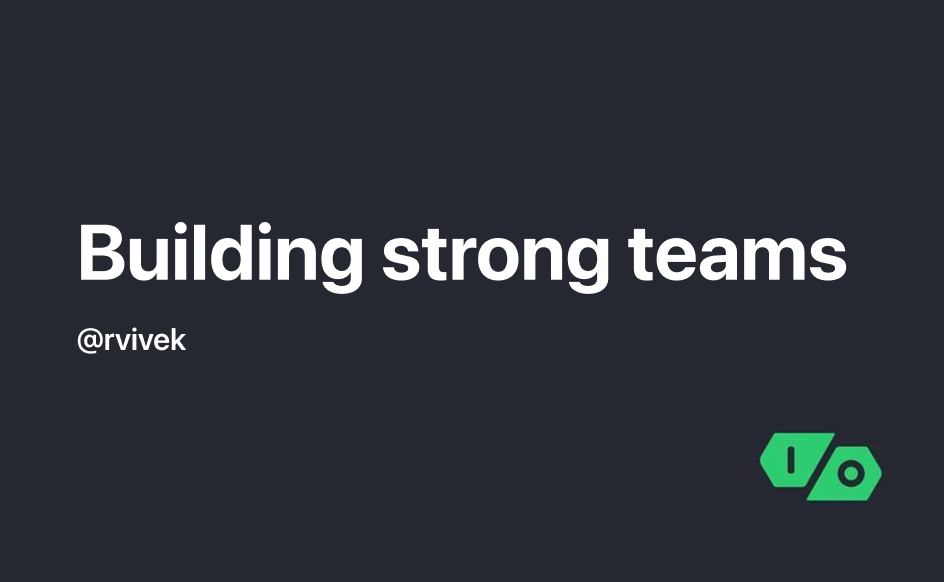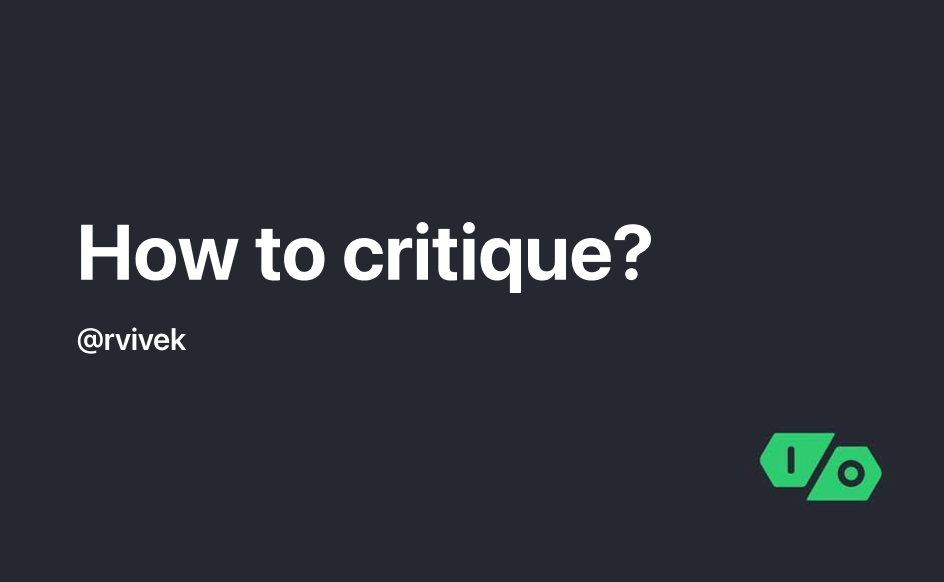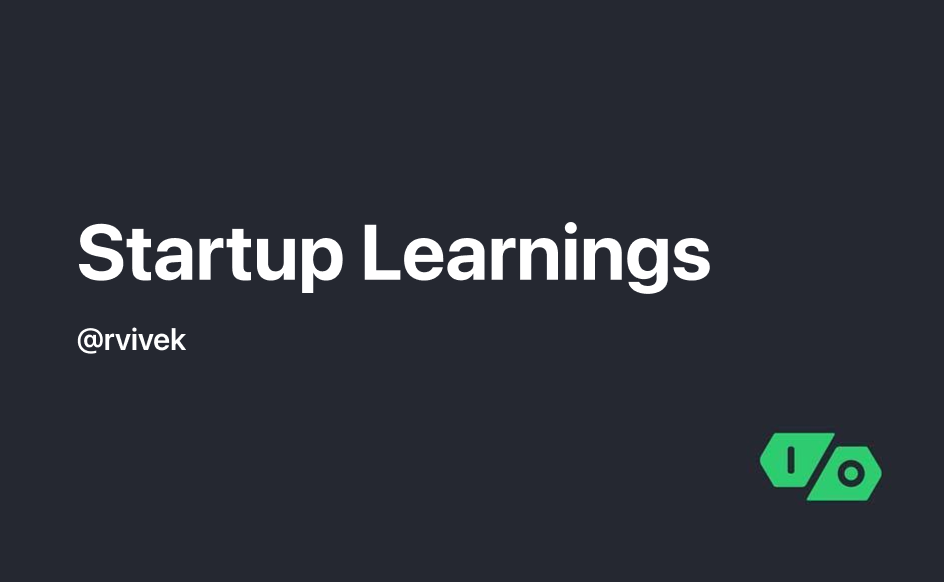Building strong teams



Here are 5 counter-intuitive things (at least to me) I learned about building strong teams over the last X years of building the company. This can be used if you are a first-time manager/entrepreneur or as general leadership principles.
Great people want to be pushed Everyone wants to retain great people. However, the general inclination to retain them is to ensure they are “protected” – have just enough work to make them feel successful, ensure they have a healthy work-life balance all year around, etc. The reality though is great people want to be pushed and challenged. They want to take on more scope & learn new skills constantly. It’s like unlocking new levels in a video game.
It’s on you to create an environment where people can do that. This is why growth is critical in a startup. A fast-growing startup by default creates this environment for great people to thrive, which attracts other great people.
When you create this environment, you will have moments when they are going to work insane hours at the time of unlocking a new level & then get back to a normal level, unlock a new one & the path continues. This is the only way you can retain great people and it’s your job as a manager to build this environment & help them expand their skillset.
The two caveats to this: ensure you set them up for success (mentors, budget, etc.) when they take on a new todo & the second is to monitor for burnout during the period of unlocking new levels.
Confrontation builds trust If everyone in your team is a “yes man/woman”, it’s the wrong team. There should be topics of contention. It’s a good thing! It means your team has a backbone and you have built a safe environment where it’s okay to disagree with you.
The resolution is to address the issue head-on. Suppressing conflicts for a long period of time makes it worse. Have a 1:1 and discuss. The goal should be to get on the same page and move forward, even if that means you have a different view (disagree & commit.) This makes your relationship stronger and ensures the company is a BS-free zone.
As an example, one interesting way that Amazon follows (to be fact-checked if it’s Amazon) is for each person to write a 1-pager on why it’s good to implement the other person’s idea before coming into the meeting & discuss pros/cons.
Vulnerability is OK There’s an incredible amount of pressure as a leader to know the answers to all the problems. The reality is you can’t. There are too many variables in business and you will face a time when everything is going downhill. It will routinely happen if you work in a startup, multiple times. It’s OK to be vulnerable with your team at these low times. Admit mistakes. Ask for help. You will be surprised at how your relationship changes and the set of events that happens next.
Knowing their personal side builds stronger bonds I used to be strict on separating professional from personal life early in my career. It’s a mistake. Finding the right balance and getting to know the person on a personal level (and vice-versa) strengthens the bond and helps you understand the person better. Bonus: This also makes it easier to give/receive feedback, which makes your professional relationship better!
People handle bad news better than you think Be open when things are going wrong, whether it’s their performance or in general about the project/company. The default tendency is to soften the bad news, imagine all the repercussions that would happen if you told them the news and go through the mountain of anxiety.
Ironically, I have been surprised every time I told bad news. Obviously, the team didn’t jump with joy but they always handled it better than I imagined in my head. They also really appreciate it. In fact, you owe this to the team. Here’s a spoiler alert: in most cases, they already likely know! So, don’t sugarcoat.
What are your learnings? Feel free to tweet me @rvivek

